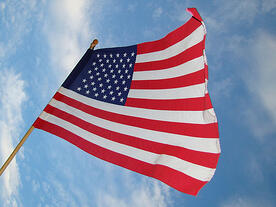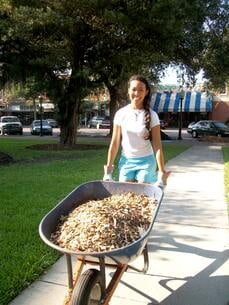This post was written by NobleHour Special Contributor Natasha Derezinski-Choo.
Service is a key factor in a person’s individual health and well-being. Service can mean fulfillment in one’s life, which contributes to a more peaceful state of mind and overall happiness. However, service is not just about the effects it has on an individual, but more importantly how the actions of several individuals can affect the greater community and the nation. To analyze the health and well-being of the nation,“the Corporation for National and Community Service (CNCS) hosts the most comprehensive annual collection of information on Volunteering and Civic Life in America and partners with the National Conference on Citizenship to produce an annual report of our nation’s civic health.” The key findings of this report show that increased volunteering and service are the result of the work of millions of volunteers dedicated to their communities. 
For the purpose of the study the CNCS collects its data from the “Current Population Survey (CPS) Volunteer and Civic Supplements conducted by the U.S. Census Bureau for the Bureau of Labor Statistics (BLS).” The data collected attests to the volunteer work of people aged 16 and up. The CNCS formally identifies volunteers as “individuals who performed unpaid volunteer activities through or for an organization at any point during the 12-month period, from September 1 of the prior year through the survey week in September of the survey year.” The report sheds positive news on the state of volunteerism, indicating that everyday people are helping overcome greater challenges by volunteering.
In recent years, volunteers have stepped up to the challenge of meeting the needs of disadvantaged community members. According to the report, volunteers engaged in several popular areas of service to meet their community’s needs. These include: fundraising (26.2%), feeding each other (23.6%), giving labor or transportation (20.3%), and educating students (18.2%). All this work totals to about 7.9 billion hours of volunteerism. The numbers are clear. Volunteerism contributes to a greater sense of community. It creates neighborhoods and cities where people care for one another, help one another, and support one another; this shows in the 41.1% of people who trust most of the people in their neighborhood and the 15.6% who say they trust everyone in their neighborhood. When people help each other and rely on each other, the build trust between each other and feel safer in their surroundings.

The report also found an increase in volunteers in response to the devastating affects of Hurricane Sandy. Volunteering is the greatest contribution and individual can give to a community because it asks of a person to give of themselves what they find missing in the world around them. With two out of three people reporting they served by doing favors for neighbors, this builds a correlation between volunteerism and better communities. In a world where technology can make it easy to isolate oneself from the outside, people have not lost what it means to be human by continuing to volunteer.
In addition to a greater sense of community, mass volunteerism is also conducive to family life. With almost 90% of volunteers reporting they eat dinner with their family a few or more times a week, close families are fitting with a civically engaged population. High rates of volunteering are found among parents, with parents being more likely to volunteer than non-parents in the same age group. Parents are most often volunteering at organizations to help their children such as schools or youth services. The top five states where parents volunteer include Utah, South Dakota, Iowa, Minnesota, and Wisconsin, and “working mothers are a key part of volunteering parents, as nearly four in 10 (38%) volunteered.” The saying “it takes a village to raise a child” comes to mind when contemplating these stats. Parents, in response to shortages in funding for schools and children’s programs, dedicate themselves and extending their parental commitments to the greater community. Volunteerism is not only increasing, but it is also increasing for the betterment of children. Additionally, parents who volunteer will likely influence their children to also volunteer as youth and later in their lives.

By presenting these statistics, CNCS encourages everyday people to take part in their communities so that the rate of volunteerism will continue to rise along with the civic health of the nation. They encourage you to take part by following the example of the millions of parent volunteers to help youth. This can be done by donating time, resources, and encouragement to improving the self-esteem and education of young people. The CNCS also suggests taking part in disaster relief efforts or helping veterans and senior citizens. A list of local volunteer opportunities can be found on NobleHour.
The proof that volunteerism and civic engagement are rising is encouraging. If volunteering rates are improving, the communities are improving, and individuals are working together toward a greater cause. For once, one should be encouraged to “follow the crowd” and engage in civic service. By doing so, each individual can contribute to a “culture of citizenship, service, and responsibility” that successfully tackles everyday issues within a community. Sometimes as a volunteer, it’s easy to wonder if one person can truly make an impact. Cumulatively, the impact is clear. People steadfastly working together is making for communities where people trust each other, depend on each other, and befriend each other. The results are back and the nation’s civic health is doing well. The numbers are good, and they can only get better. Keep searching on NobleHour for ways to cultivate and raise volunteerism.
“Imagine all the people sharing all the world . . . And the world will live as one.” –John Lennon, “Imagine”





